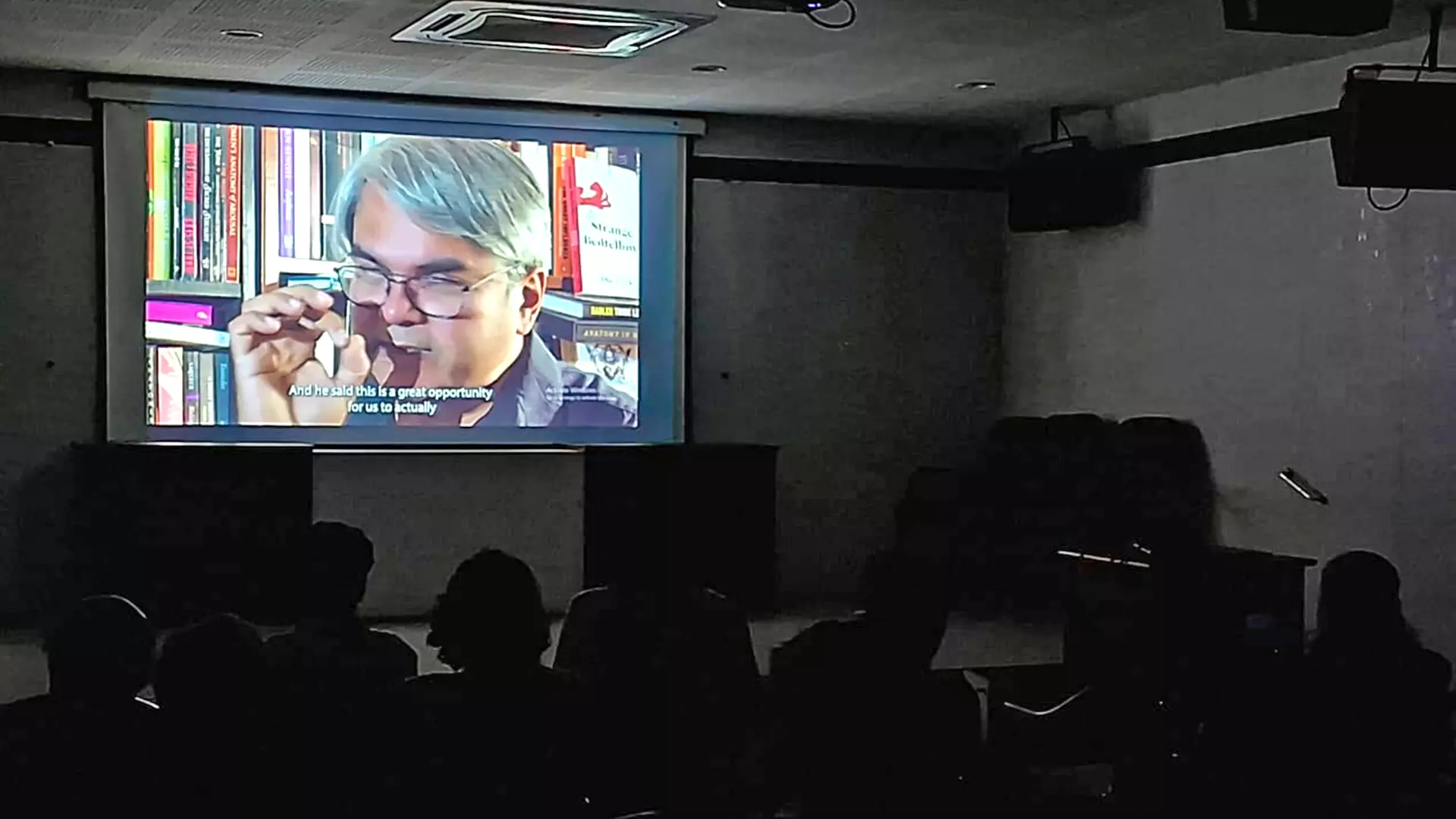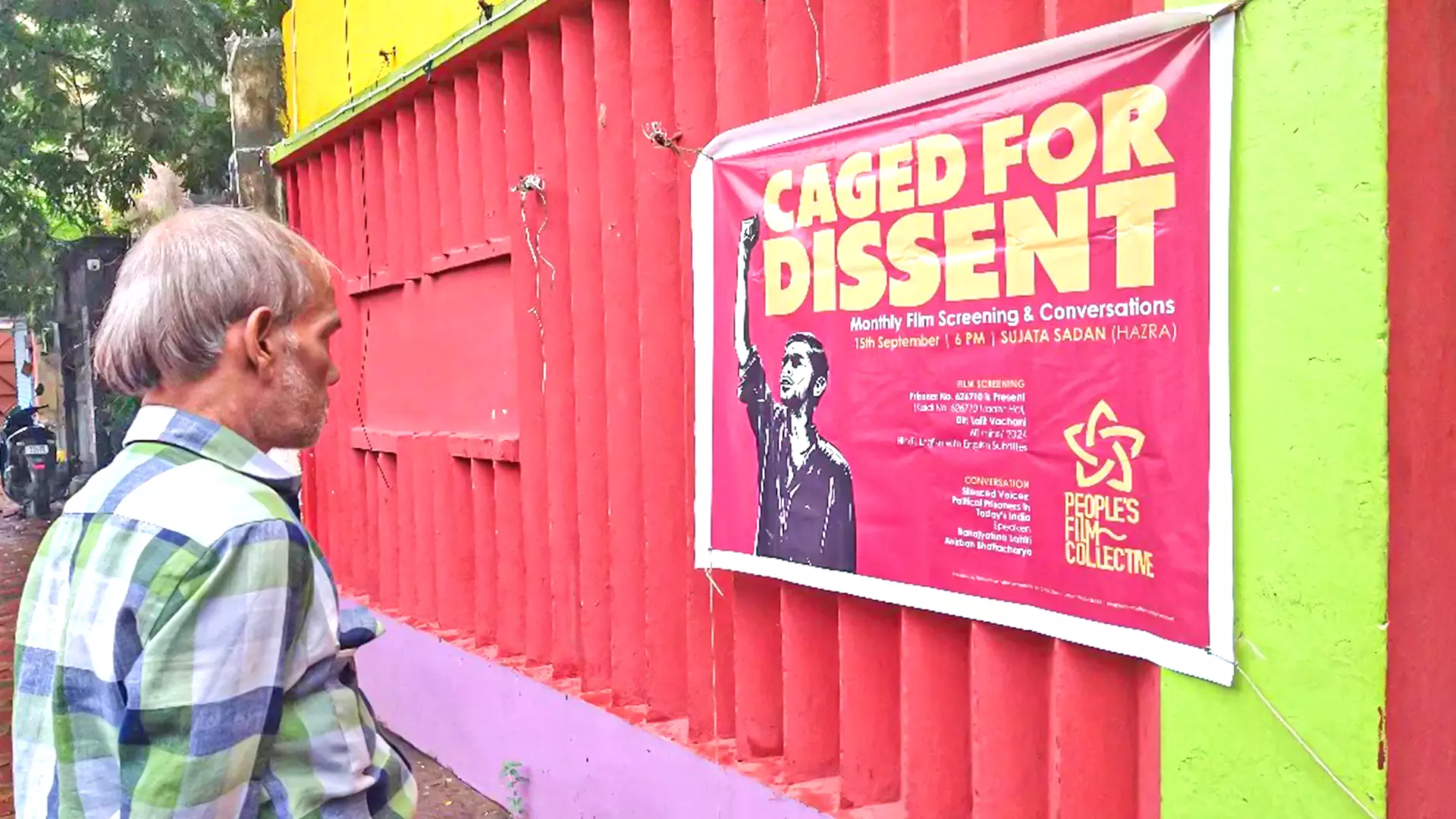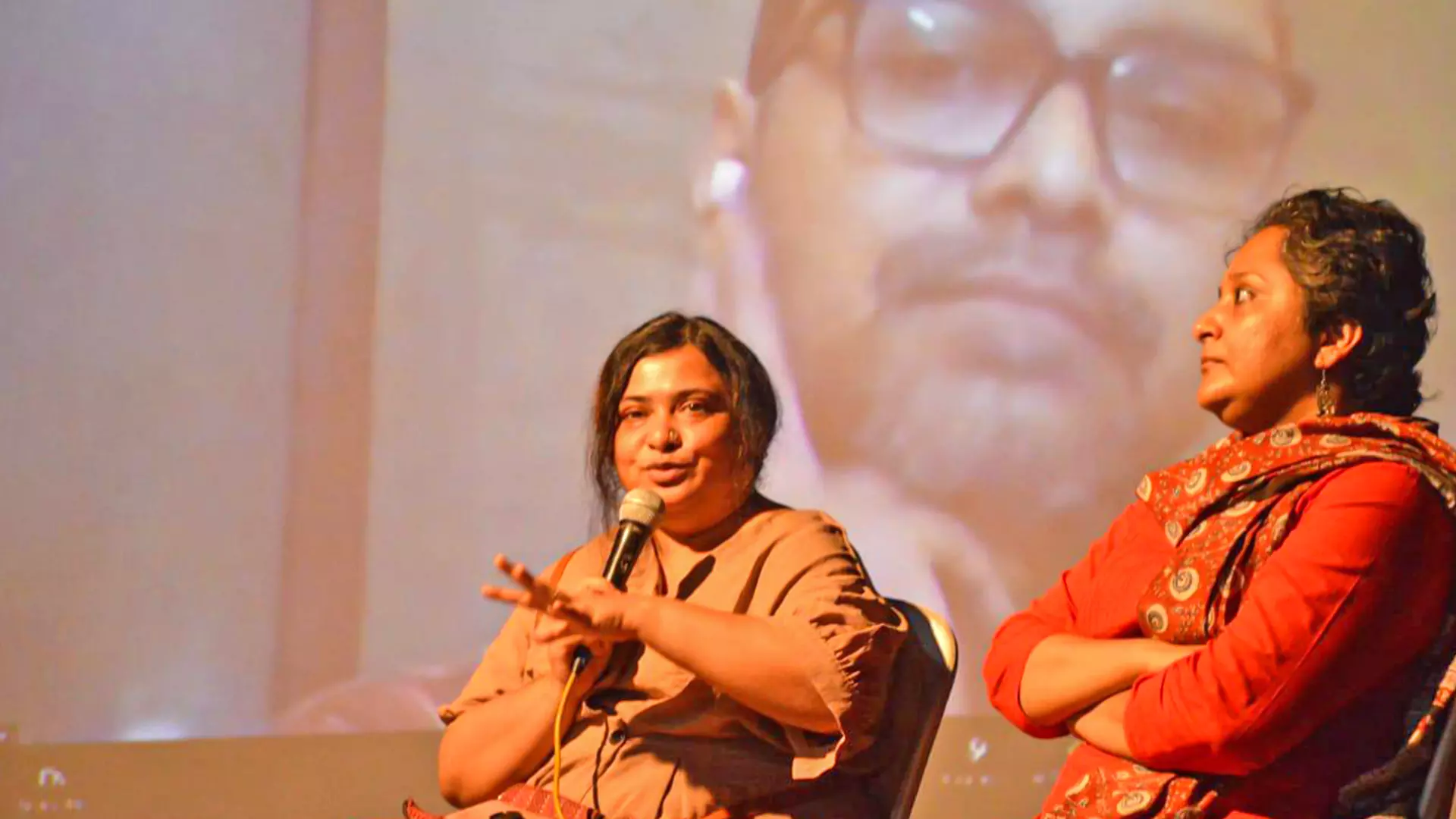
- Home
- India
- World
- Premium
- THE FEDERAL SPECIAL
- Analysis
- States
- Perspective
- Videos
- Sports
- Education
- Entertainment
- Elections
- Features
- Health
- Business
- Series
- In memoriam: Sheikh Mujibur Rahman
- Bishnoi's Men
- NEET TANGLE
- Economy Series
- Earth Day
- Kashmir’s Frozen Turbulence
- India@75
- The legend of Ramjanmabhoomi
- Liberalisation@30
- How to tame a dragon
- Celebrating biodiversity
- Farm Matters
- 50 days of solitude
- Bringing Migrants Home
- Budget 2020
- Jharkhand Votes
- The Federal Investigates
- The Federal Impact
- Vanishing Sand
- Gandhi @ 150
- Andhra Today
- Field report
- Operation Gulmarg
- Pandemic @1 Mn in India
- The Federal Year-End
- The Zero Year
- Science
- Brand studio
- Newsletter
- Elections 2024
- Events
1400 days and counting: As Umar Khalid remains in jail, friends ‘document’ travesty of justice

It has been more than 1,400 days, and Prisoner No. 626710 waits for a bail hearing in court. Two friends (Banojyotsna Lahiri and Shuddhabrata Sengupta) who await his release, reminisce and discuss the events and the circumstances that led to his arrest. Renowned documentary filmmaker-professor Lalit Vachani’s recently released Prisoner No. 626710 is Present, which begins with a set of...
It has been more than 1,400 days, and Prisoner No. 626710 waits for a bail hearing in court. Two friends (Banojyotsna Lahiri and Shuddhabrata Sengupta) who await his release, reminisce and discuss the events and the circumstances that led to his arrest. Renowned documentary filmmaker-professor Lalit Vachani’s recently released Prisoner No. 626710 is Present, which begins with a set of informal shots and scenes of unrest, raising questions about UAPA (Unlawful Activities Prevention Act) and the fundamental rights guaranteed to citizens under the Indian Constitution.
On September 13, 2020, Umar Khalid, a student leader who just finished his PhD at JNU, was arrested under the UAPA for allegedly masterminding the 2020 north-east Delhi riots. The UAPA enables the Indian state to imprison individuals without provision of bail and without the due process of legal hearings. As an Indian Muslim, Umar dared to protest against the Citizenship (Amendment) Act, 2019 which gives amnesty to non-Muslim illegal immigrants from neighbouring countries.

Screening of Prisoner No. 626710 in Chennai.
Using found footage of his previous speeches along with a forensic analysis of how he was framed by the right-wing, Hindu nationalist media, Umar’s close friends Banojyotsna Lahiri and Shuddhabrata Sengupta reconstruct the chronology of events that led to his arrest and subsequent imprisonment. The 60-minute-long documentary shows how fast the UAPA could curtail the fundamental rights of a citizen, and that too without any legal remedies. Vachani wants his documentary to reach more people. The more it reaches people, the more it serves the purpose. A couple of weeks ago, he released Prisoner No. 626710 is Present online to mark the fourth anniversary of Umar Khalid’s draconian imprisonment. Even though many watched the documentary online, there were special screenings in most of the towns and cities which evoked great response.
On September 15, 2024, the People’s Film Collective (PFC), an independent, autonomous, people-funded cultural-political collective, screened the documentary in Kolkata. “The documentary shows the numerous forms of collective action that Umar Khalid was part of wherein he raised concerns about the growing religious polarisation and identity politics scarring India. Simultaneously, in his videos, he repeatedly referred to Gandhi’s satyagraha and ahimsa to emphasise that another politics is possible. In one of his featured speeches, Umar – and sparking off Rohith Vemula’s letter – noted that in this political environment of identity-based polarisation, he too has been ‘reduced to his immediate identity,’” said Devi Vijay, professor at the Indian Institute of Management, Kolkata and a member of the PFC, after watching the documentary.
A recurring point that the documentary emphasises, according to Devi, is the corporate media’s role in spreading misinformation and fake news. “Vachani shows footage of sustained demonization, misrepresentation and persecution of Umar by the media, constructing a narrative of ‘anti-nationalism’, secessionism, and linkages to ‘terror’ groups. Similarly, divisive narratives by Hindutva spokespersons on social media such as X (formerly Twitter) are amplified and form the basis of police cases against those targeted,” she added.

Lalit Vachani's 'Prisoner No. 626710 is Present' based on Umar Khalid was screened at Sujata Sadan in Kolkata.
Lalit Vachani’s documentaries include The Starmaker, The Boy in the Branch, The Men in the Tree, The Play Goes On, The Salt Stories and In Search of Gandhi, An Ordinary Election and Tales from Napa among others. He lives in Göttingen, Germany where he teaches courses on media and politics, the political documentary film at the Centre for Modern Indian Studies (CeMIS) at the University of Göttingen. His films have won awards from the Soros and Sundance Documentary Foundations, the Jan Vrijman Fund, and the India Foundation for the Arts. As a filmmaker with a cause, Vachani doesn't make any compromise. He wanted to reach the movie to more people and that’s why he released it online a couple of weeks ago. “I have no additional comments to make at this point. Please feel free to write about the film as you see fit,” said Vachani. True, Prisoner No. 626710 is Present sums up what he has to say.
A trailer, which was made after finishing the post-production work of the documentary, reads: “At the time of making this trailer, Prisoner No: 626710 had been in prison for 1,415 days or 33,960 hours. Fourteen bail hearings have been adjourned so far.”
Eyewitnesses claim that all of them were peacefully protesting the CAA, speaking about peace, non-violence and the ideals of the Constitution. These were the people who have been arrested. “The CAA was passed in December, 2019. It was the Jamia Millia Islamia students who first protested against the CAA most decisively. But in the end-February, 2020, the Delhi riot took place. And after that the spinning of the narrative started taking place. They put the entire blame of the riot on the anti-CAA protests,” said Banojyotsna Lahiri, Umar’s friend and close associate. “You can’t link a Kanhaiya Kumar to Jaish-e-Mohammed (a Pakistan-based terrorist group), but you can very easily link an Umar Khalid to them. The right-wing media that ran the story that Umar had links with the terrorist group, however, stopped running it once the ministry and the police denied it. But the damage was done,” she added.

Banojyotsna Lahiri (left) at the screening in Kolkata.
In a public meeting in Amaravati (Andhra Pradesh), Umar Khalid once said: “We won’t respond to violence with violence. We won’t respond to hate with hate. If they spread hate, we will respond to it with love.” With videos, photographs and conversations of Banojyotsna Lahiri and Shuddhabrata Sengupta, Prisoner No. 626710 is Present shows us how the application of a draconian law is unfit for a democratic society. The documentary was screened in cities like New Delhi, Mumbai and Chennai as well. In Chennai, it was screened as part of the 23rd Social Justice Film Festival 2024 at Periyar Thidal on 13 September. “It is very important to screen a film about Umad Khalid at this juncture, especially on the 4th year of his incarceration,” said Amudhan RP, a documentary-filmmaker and director of the Social Justice Film Festival. “The film gave light to the unspoken and forgotten side of the contemporary political history of this country. To see a young Muslim intellectual getting punished unfairly without any trial for raising voice against a communal riot and the hate campaign, is heart wrenching and thought provoking experience. At a time when the mass media is completely bought over, it is these alternative art forms that connect us with reality,” said Amudhan.
The documentary evoked tremendous response wherever it was screened. And it shows the relevance of it. Nobody knows what will happen to Umar as uncertainty prevails over his bail and release. His friends say they will continue the fight. As screening of the documentary progresses in other cities, a comment that appeared on the homepage of the PFC after the screening gives hope: “It was a full house for Umar Khalid and all fellow political prisoners. Lalit Vachani's film makes a passionate case for their release… Our audience today took responsibility for organising 13 more screenings in the coming month. There's so much support for Umar Khalid, Sharjeel Imam, Gulfisha Fatima and all others, and yet they are still behind those damned bars for reasons we understand. Let all the caged birds fly.”
